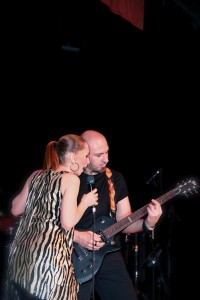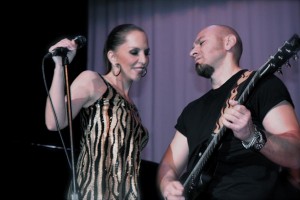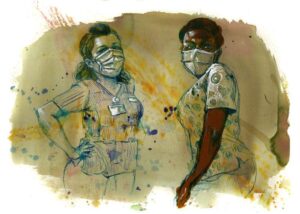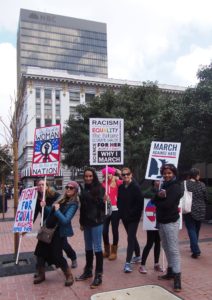Music is like water, and they put the colors onto it…
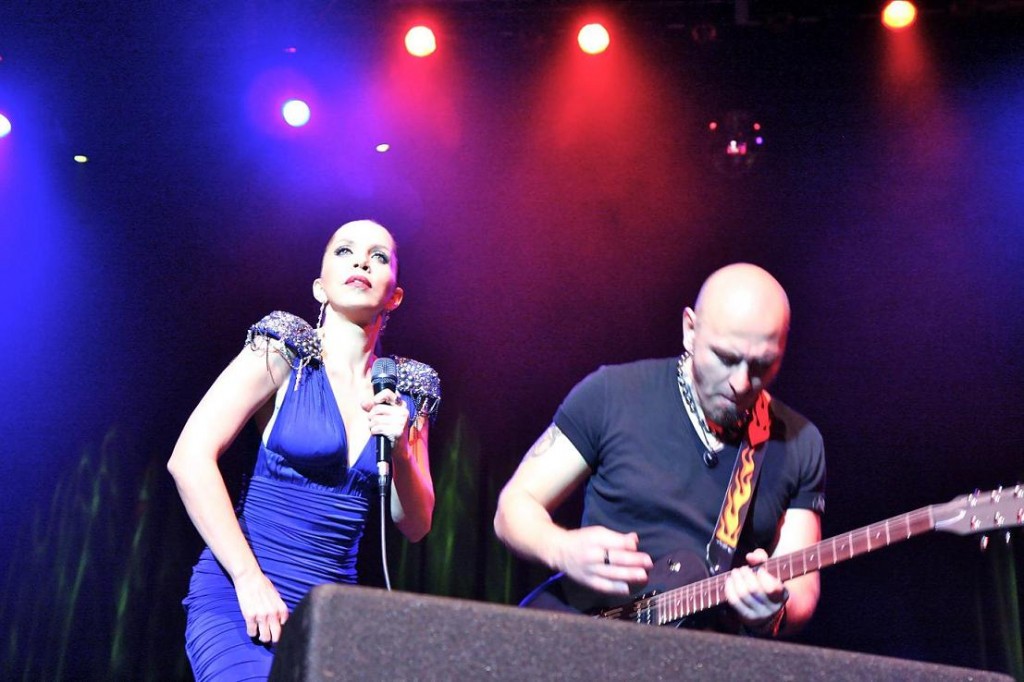
The group “Painted On Water” have just released their new single “Love” and highly successfully toured 15 cities in the US…
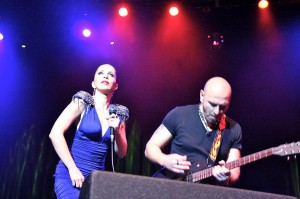 The self titled debut album “Painted on Water” released in June 2009 by artists Sertab Erener and Demir Demirkan is a combination of traditional music and art from eastern culture with America’s roots music, jazz and blues representing the culmination of a truly global vision.
The self titled debut album “Painted on Water” released in June 2009 by artists Sertab Erener and Demir Demirkan is a combination of traditional music and art from eastern culture with America’s roots music, jazz and blues representing the culmination of a truly global vision.
Sertab Erener and Demir Demirkan are among Turkey’s most celebrated musicians. Sertab’s 12 albums have sold millions in Turkey, and as far away as Japan. Guitarist, composer and “Painted on Water” album co-producer Demir became one of Turkey’s true rock stars in the Istanbul heavy metal band Pentagram. He has released three solo albums and two film scores. He and Sertab co-wrote the 2003 international hit, “Every Way That I Can,” Turkey’s first and only winner in the history of the Eurovision Song Contest. I had the opportunity to interview both artists for Turkish Journal about their career, and the making of this international music project.
Demir is known for creating new musical forms, but everyone has a hard time categorizing his music. I asked him how he would describe their first album?
“I know it’s very hard to categorize the first Painted on Water album. It is the first creative outcome of a new idea. I think all ideas, in the beginning come out to be in a formless state. I think if we look at the evolutions of most of the bands, say even, Pink Floyd, Deep Purple and the likes, we would see that their music stables after the 2nd or 3rd albums. I think this is how it is with our first release, but our new single “Love” is easier to categorize. I would say it’s ambient rock” he said.
How did US adventure start?
Demir: It started almost 3 years ago when we came up with the “Painted on Water” idea. We wrote the material in Turkey and recorded it in L.A. and NY. And then we did some additional recordings in Turkey. It took long to come up with the musical structure. We were having some record companies listen to the music during the studio period and Motema Music agreed to put out the CD. It was released in 2008.
How long did it take to agreement with the musicians for this album?
Demir: I don’t remember exactly but not more than a few months.
What is the story behind Painted on Water?
Demir: The name “Painted on Water” is taken from an art form called Ebru, where the artist literally paints pictures on water. It’s an ancient Turkish art. A tray is filled with oil-treated water, and the artist drops paint in the water, then shapes it according to what he’d like to draw. And then he/she lays a special paper on the painting to print it on the paper. I also wanted to refer to this art form to name the band because there is a philosophical background to it. When you paint something on water you know it’ll not stay, but you still want to paint the best picture you can. As we know that one day we won’t be walking this earth, we still want to make the best of our lives, paint the best picture… Me, as a musician, I do a lot of recording. These recordings to me are the paper I lay on the ebru painting to freeze that moment in time. This is the story of Painted on Water…
What does affect your music…?
Demir: The first album was mainly based on traditional Anatolian folk songs. For some songs I took musical elements like rhythm, figure or phrasing from the traditional songs and build modern songs around them. For some other songs Sertab changed the melodic phrasing and I put harmonies underneath them. There is no polyphonic harmony in traditional Turkish music so I had to come up with some. The lyrics are in English but they are not direct translations. For the songs that we took as whole, I had a strong feeling about the subject matters. These songs are embedded in Anatolian culture so, I think very fragile in content. It wouldn’t make any sense to directly translate because the reference universe is very foreign. But the emotional content is universal. The emotional base was the common ground between the two cultures. Phil Galdston, who wrote some of the lyrics, was very cautious and being an expert in lyric writing, did understand my concern and came up with some great material. I wrote the rest of it.
How does music reflect your view?
Demir: If someone is honest in making his/her music, that music reflects his/her soul. If we have to make an analysis, modern western/global music with elements of Anatolian music reflects me as a person in heart/mind and spirit.
At the end what stays in your mind about Anatolian folk music?
Demir: I think it’s the rhythmic and the ambient feel of it. The spirit of the energy it reflects.
How important the traditional instruments?
Demir: You know, I am not very big on traditional instruments; in fact we only used tablas and some djembe. I think electric guitars, drums, bass guitars are going to be traditional instruments if we wait long enough. I am more interested in construction of sounds, integrating with melody and lyrics. This is what reflects emotions.
You speak the first language of the world, the one everyone understands: music. What is a good piece of music?
Demir: This is not an easy question to answer, but I’ll try to give my personal opinion. I think what makes a piece of music “good” is the intent and the intention in it. Technical correctness and perfectness can be argued about but the intent and the intention is the source. If the piece of music is able carry the message intended in the way it’s supposed to, then it’s good music.
Which musicians did have an influence on your music?
Demir: David Gilmour, Roger Waters, Phillip Glass, Steve Vai, Eric Satie, Stevie Ray Vaughn, Eric Clapton, Asik Veysel, Massive Attack, Shpongle.
What have you been listening recently?
Demir: Lots of electronic music and classical music.
“Composers can invent a new, completely different way of writing by means of the implementation of technology” they say… What is your opinion?
Demir: That makes sense, but up to a point. That kind of writing leads up to a certain style of music. If you’re going to end up writing an acoustic piece, I still think it’s more logical to start with an acoustic guitar. On the other hand, orchestral arrangements and electronic stuff is a lot easier to do on computer base working environments.
Everything is so much faster now that music is a commodity and makes it hard to create a fan base since people are capable of reaching to the music of far away places. The music business is changing in the US. The groups are more willing to make more concerts and touring. Making an album is not enough. How is Turkey affected with technology and downloading?
Demir: The music business has changed globally with the digitization of sound. All the musicians around the world, now, go for the live because obviously it can’t be copied. I think CD format will be left in years to come and it all will take place on the web or on the mobile phones. Aside from the marketing and sales, it’s still the same business. Write, record, perform… Between recording and performing you have the marketing, which has changed completely. I guess the marketing people will be on the rise like the record company people of the old. Writing is writing, you have to have that. Records are made in the bedrooms now…
What is the situation in Turkey with pirating the songs, albums? Are all the laws in place and fitted to the EU?
Demir: There was a lot of sales of copies some years ago but I guess internet killed them, too. There are all sorts of laws and some work. It’s basically illegal to open a site to have people download from and also download from that site. I think the main issue here is the peer-2-peers and torrents. I think everyone creative who puts out material is caught in between. Is it good or is it bad…
How do you like to record at Hanson?
Demir: I felt like a rock star from the 80’s… Huge studio, full day lock-outs, Los Angeles. But when you get in to the creative process it’s all the same, you center yourself in music and don’t see much of the surroundings. An isolated place would help…
How do you like to work with Sertab?
Demir: I’ve been working with her for 13 years. I’ve produced and wrote for her on many projects of hers and mine. She’s a very capable singer and very versatile. And on her road, she is a warrior. I haven’t met any other singer, especially female, who would get up at 5:30 in the morning, make up and do a morning show and sing in a different city for a month!!
What about you Sertab, how do you like to work with Demir?
Sertab: We have been working together for thirteen years… He produced seven of my albums and wrote many songs for me. If I am successful right now, I owe him a lot. In all these years he shared his creativity without any ego trips and with ambition and that is amazing.
Here is the general question for you: What’s the strongest memory that comes to mind of growing up as a Turkish?
Demir: I haven’t really had that point of perception growing up, I always felt like I had a global sense.
Sertab: I always felt the same thing as Demir.
What are the advantages and disadvantages that you have experienced as a European musician?
Demir: One of the advantages is to inherit a very deep cultural and musical root, for me. Ottoman and Anatolian music and culture is very unique and very well known in the world. I like to pull some threads out of it and use in my compositions.
Sertab: There are too many advantages for me as well, one of the most important advantage is the uniqueness. That’s why we liked to put some Turkish spice on the painted on water sound.
If you were not Turkish, how would your music be different than today?
Demir: I can’t really tell, whatever I would say would be wrong. I don’t think it’s the ID that you carry that says Turkish that makes up the sum of you, it’s the whole story that you build from birth till now. In my case I was born In Turkey but not raised as a traditional Turkish guy. I have traveled a good deal and absorbed many aspects of different cultures and peoples. I don’t mean only acknowledging, I mean really adapting.
What’s the best piece of advice you will give to young European musicians who have plans of coming to US?
Demir: All I can say is that they have to make this the priority in their lives. Things may look like they are happening overnight but that’s not the fact. USA is a huge country. If you’re out to get people know your material get ready to do a lot of work. You have to be sincere about your music and your attempt to get it out.
Success?
Sertab: Success is: to make your dreams come true, and believe in this dream hundred percent without fear…
How do you want to be remembered?
Sertab: As a good person.
What is your goal?
Sertab: To live in love every each moment and every each action.
I know that you like New York, Sertab… How do you feel for the rest of the USA?
Sertab: I have been traveling and doing concerts in Europe for seventeen years. I experienced so many good things, had some great memories but time to time unfortunately I also faced prejudice and some political issues in Europe as a foreigner. Two years ago, we started to live in New York, half the year, for POW project… And I like to live in New York as you say. But then again after this one month PR tour I’d like to say that I had a great time in each state in this huge and beautiful country. We met with friendly people. They were open minded, very welcoming and professional …
I wondered if you are planning to make a world tour with the album and planning to make a Turkish version of it?
Sertab: Yes we are expecting to make a world tour with this single called ‘Love’ and for the next POW albums. We are not planning to make a Turkish version of it…
What’s next?
Demir: We have some European shows and then we’ll start writing the 2nd album. We are also planning a US tour in October 2010.
For more information: www.paintedonwater.com
